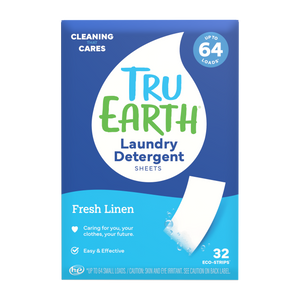Nowadays, the concept of zero waste has gained significant attention as a sustainable lifestyle choice. It's about minimizing waste production and reducing our environmental footprint.
Whether at home or in the office, adopting zero-waste practices can make a substantial difference. In this guide, we will explore practical strategies and detailed tips to help you achieve a zero waste lifestyle in both your home and workplace.

Zero Waste Principles
The 5 R's of Zero Waste
Refuse
Start by refusing what you don't need. Say no to single-use plastics, junk mail, and promotional materials that clutter your space. Challenge unnecessary packaging when making purchases.
Reduce
Minimize your consumption. Buy products with minimal packaging and consider quality over quantity. Embrace minimalism and focus on what truly adds value to your life.
Reuse
Extend the life of items by reusing them. Opt for reusable shopping bags, water bottles, and containers. Invest in high-quality products that are designed to last.
Recycle
Recycle as much as possible. Familiarize yourself with local recycling guidelines to ensure proper disposal. Be diligent about separating recyclables from trash and reducing contamination.
Rot
Compost organic waste to divert it from landfills and create nutrient-rich soil. Composting not only reduces waste but also enriches your garden and reduces the need for chemical fertilizers.
Zero Waste at Home
Zero Waste Kitchen
Bulk Shopping
Purchase pantry staples like grains, beans, and spices from bulk bins using your reusable containers or cloth bags. Buy in larger quantities to reduce packaging waste.
Composting
Set up a composting system for kitchen scraps, including fruit and vegetable peels, coffee grounds, and eggshells. Composting not only reduces waste but also creates valuable soil.
Cloth Napkins
Use cloth napkins instead of disposable ones to reduce paper waste. Cloth napkins not only add elegance to your meals but also save money in the long run.
Reducing Bathroom Waste
Bar Soap
Replace liquid soap with bar soap, which typically has less packaging and lasts longer. Choose soap bars that come in minimal or no packaging.
Bamboo Toothbrush
Opt for a bamboo toothbrush instead of a plastic one. Bamboo is a renewable resource, and these toothbrushes are biodegradable.
Cloth Diapers
If applicable, consider cloth diapers instead of disposable ones for babies. Cloth diapers are not only more eco-friendly but also cost-effective in the long term.
Sustainable Cleaning
DIY Cleaning Products
Create your cleaning solutions using simple ingredients like vinegar, baking soda, and essential oils. DIY cleaners are effective and cost-efficient and reduce the need for single-use plastic bottles.
Reusable Cleaning Cloths
Use washable and reusable cleaning cloths instead of disposable paper towels. Microfiber cloths, cotton rags, or old T-shirts can serve as excellent alternatives.
Zero Waste at the Office
Paperless Practices
Digital Documents
Opt for digital documents and email communication to reduce paper usage. Embrace cloud storage and digital signatures for a more streamlined and eco-friendly office.
Duplex Printing
Set printers to duplex (double-sided) printing to save paper. Encourage employees to review documents digitally rather than printing unnecessary hard copies.
Recycling Bins
Ensure that recycling bins are readily available and clearly marked throughout the office. Make recycling as convenient as possible for employees.
Reduce Energy Consumption
Energy-Efficient Lighting
Replace traditional bulbs with energy-efficient LED or CFL lighting. Consider motion sensors or smart lighting systems that automatically adjust brightness based on occupancy.
Power Down
Encourage employees to power down computers and office equipment when not in use. Invest in power strips that can be easily switched off at the end of the workday to prevent standby power consumption.
Natural Ventilation
If possible, use natural ventilation to reduce the need for air conditioning. Open windows and doors to let fresh air circulate through the office.
Sustainable Supplies
Eco-Friendly Office Supplies
Choose eco-friendly office supplies made from recycled or sustainable materials. Look for products with minimal or recyclable packaging.
Reusable Utensils
Provide reusable utensils and dishes in the office kitchen instead of disposable options. Encourage employees to bring their reusable water bottles and coffee mugs to work.
Implementing Zero Waste Practices
To successfully implement zero waste practices, it's necessary to focus on education and training as well as conducting waste audits. Employee training sessions should be organized to raise awareness about the significance of zero-waste practices and provide guidance on incorporating these principles into their daily work routines.
Additionally, developing a comprehensive zero-waste policy is essential, outlining clear guidelines and expectations for all employees. Regular waste audits should be conducted to monitor progress and identify improvement areas. By combining education, policy development, and data-driven insights, organizations can make significant strides toward achieving zero waste goals in their home or office environments.

Paving the Way to a Greener Tomorrow
Embracing a zero-waste lifestyle is an approach that involves conscious choices and a commitment to sustainability.
Whether at home or in the office, adopting zero-waste practices benefits the environment, conserves resources, and sets a positive example for others to follow. By following the principles of reduce, reuse, and recycle, you can significantly minimize waste and make a meaningful contribution to a more sustainable future.

